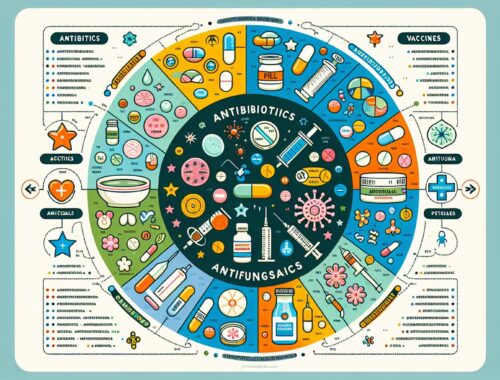
Exploring the Different Types of Medicines
When it comes to treating illnesses and maintaining overall health, there are various types of medicines available. Each type of medicine serves a specific purpose and is used to target different health conditions. In this blog post, we will explore the different categories of medicines and their functions.
Over-the-Counter Medicines
Over-the-counter (OTC) medicines are readily available without a prescription and can be purchased at pharmacies or supermarkets. These medicines are used to treat minor illnesses like headaches, colds, allergies, and indigestion. Examples of OTC medicines include pain relievers like ibuprofen and acetaminophen, antihistamines, and cough syrups.
Prescription Medicines
Prescription medicines, on the other hand, require a doctor’s prescription to obtain. These medicines are typically used to treat more serious health conditions like bacterial infections, high blood pressure, and chronic illnesses. Prescription medicines can include antibiotics, antidepressants, chemotherapy drugs, and insulin for diabetes management.
Herbal and Natural Medicines
Herbal and natural medicines are derived from plants and other natural sources. These medicines have been used for centuries in traditional medicine practices and are believed to have healing properties. Examples of herbal and natural medicines include echinacea for immune system support, ginger for nausea relief, and turmeric for anti-inflammatory benefits.
Homeopathic Medicines
Homeopathic medicines are based on the principle of “like cures like” and are made from highly diluted substances derived from plants, animals, and minerals. Homeopathic medicines are used to stimulate the body’s natural healing processes and are often used to treat chronic conditions like allergies, migraines, and arthritis.
Specialty Medicines
Specialty medicines are a category of prescription medicines that are used to treat complex or rare medical conditions. These medicines are often expensive and require special handling and administration. Specialty medicines include biologics for autoimmune diseases, gene therapies for genetic disorders, and orphan drugs for rare diseases.
In conclusion, the different types of medicines play a crucial role in maintaining our health and treating a wide range of illnesses. Whether it is over-the-counter, prescription, herbal, homeopathic, or specialty medicines, each type serves a specific purpose and can provide relief and healing when used appropriately. It is important to always follow the instructions of healthcare professionals and use medicines responsibly to ensure optimal health outcomes.
You May Also Like

Understanding the Different Types of Medicines
March 11, 2024
Understanding Different Types of Medicines
February 12, 2024

